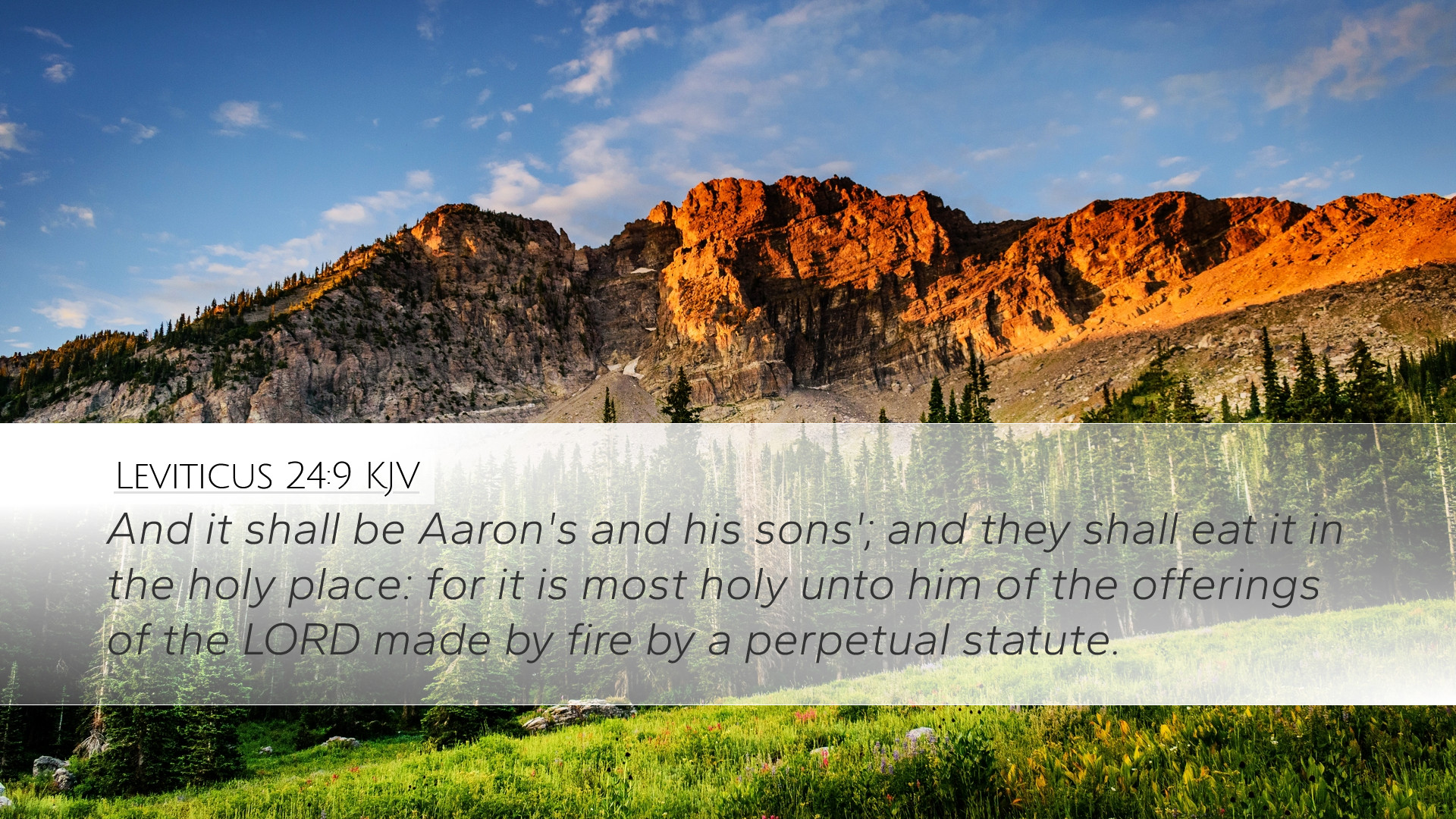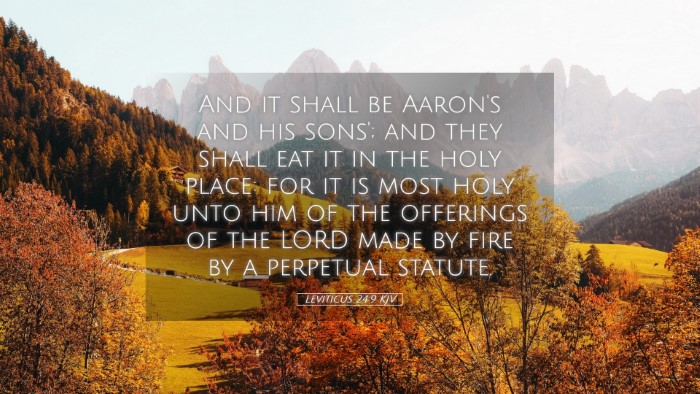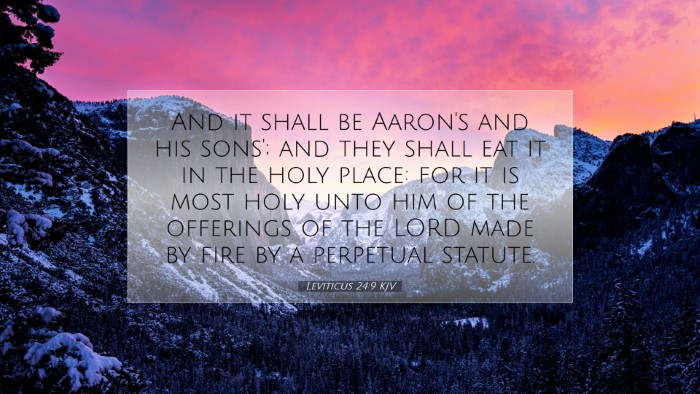Commentary on Leviticus 24:9
Verse: Leviticus 24:9 - "And it shall be Aaron's and his sons'; and they shall eat it in the holy place: for it is most holy unto him of the offerings of the Lord made by fire by a perpetual statute."
Contextual Overview
Leviticus is one of the most significant books in the Pentateuch, providing comprehensive instructions for the priests and the people of Israel regarding worship, sacrifice, and holiness. This particular verse is situated within the instructions concerning the showbread, which represents God's continual presence with His people.
Theological Significance
This passage emphasizes several key theological principles:
- Holiness of the Offerings: The phrase "it is most holy" indicates the sanctity and reverence required when dealing with offerings made to the Lord. These offerings were not simply food but rather sacred tokens of fellowship with God.
- Role of the Priests: Aaron and his sons being the designated eaters represent the continuation of priestly responsibility. This underscores the special role of the priesthood in mediating between God and humanity.
- Communal Aspect: Sharing the bread highlights the communal relationship between God and His people. Eating together fosters fellowship, reinforcing the idea that God desires closeness with His worshipers.
Insights from Esteemed Commentators
Matthew Henry
Matthew Henry highlights that the bread of the Presence, or showbread, must be treated with utmost respect and holiness. He emphasizes that the priests’ duty not only involves the offering of sacrifices but also the eating of the holy offerings to maintain their consecration. Henry elucidates that by eating this bread in the 'holy place,' they partake in a continuous acknowledgement of God’s provision and presence among His people.
Albert Barnes
Albert Barnes contributes to the understanding of this verse by explaining that the showbread serves a dual purpose: a symbol of God’s provision and a reminder of the commitment of the people to serve Him. He notes the importance of the stipulation that only priests may consume these offerings, which symbolizes both their exclusion and their unique sanctity before God. This not only establishes a boundary of holiness but also illustrates the necessity of mediatorial work in approaching the divine.
Adam Clarke
Adam Clarke provides a rich analysis on the practical implications of this verse, asserting the significance of the 'holy place' where the priests partake of the bread. He articulates that this action plays a crucial role in the continuity of worship and fellowship. He also comments on the perpetual statute associated with the offerings, suggesting that such acts were not limited to momentary observance but should be woven into the very fabric of Israel’s worship life. Clarke stresses that this perpetuity speaks to the enduring nature of God's covenant with His people.
Pastoral Application
For pastors and church leaders, Leviticus 24:9 serves as a poignant reminder of the importance of treating all worship practices as sacred. It challenges leaders to maintain the holiness of the communion table and the offerings presented to God. The importance of teaching congregants about the sanctity of worship elements can foster a deeper understanding of God’s presence in their lives.
Academic Reflections
For students and theologians, this verse invites a deeper exploration of the concepts of holiness, mediation, and community in the context of worship. The implications of Aaron's priesthood can lead to discussions on the broader themes of Christ’s atoning work, as He fulfills the ultimate role of High Priest. Detailed examination of this text may also bring insight into how the sacrificial system shaped Israel's understanding of sin, redemption, and divine fellowship.
Conclusion
Leviticus 24:9 encapsulates essential themes of holiness, community, and the role of priesthood. The insights from public domain commentaries illuminate the significance of this passage for both ancient Israel and contemporary faith communities. By appreciating the depth of this scripture, believers can foster a more profound sense of reverence and relationship with God.


